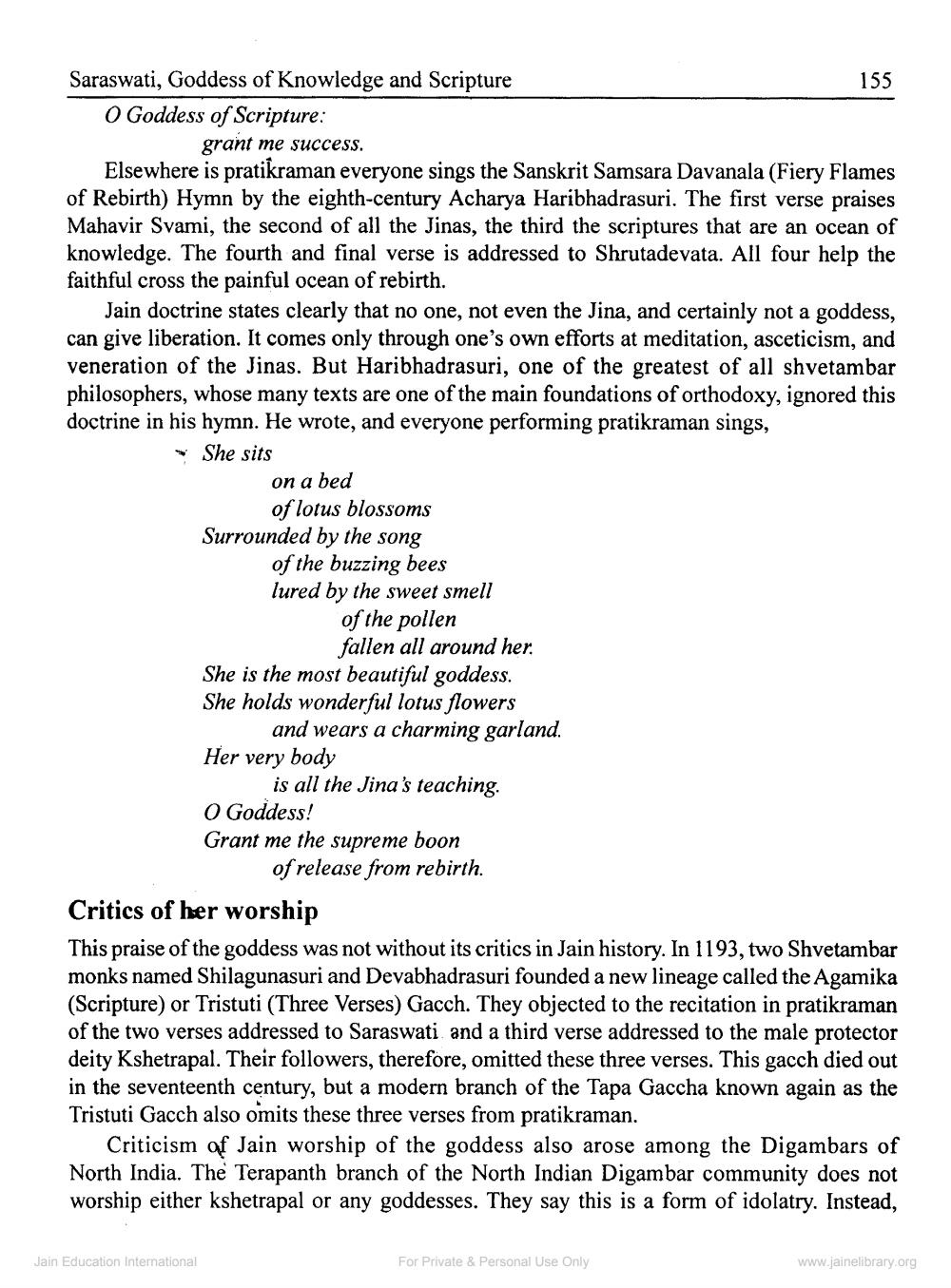________________
Saraswati, Goddess of Knowledge and Scripture
O Goddess of Scripture:
grant me success.
Elsewhere is pratikraman everyone sings the Sanskrit Samsara Davanala (Fiery Flames of Rebirth) Hymn by the eighth-century Acharya Haribhadrasuri. The first verse praises Mahavir Svami, the second of all the Jinas, the third the scriptures that are an ocean of knowledge. The fourth and final verse is addressed to Shrutadevata. All four help the faithful cross the painful ocean of rebirth.
Jain doctrine states clearly that no one, not even the Jina, and certainly not a goddess, can give liberation. It comes only through one's own efforts at meditation, asceticism, and veneration of the Jinas. But Haribhadrasuri, one of the greatest of all shvetambar philosophers, whose many texts are one of the main foundations of orthodoxy, ignored this doctrine in his hymn. He wrote, and everyone performing pratikraman sings,
→She sits
on a bed
of lotus blossoms Surrounded by the song of the buzzing bees lured by the sweet smell of the pollen
fallen all around her.
She is the most beautiful goddess. She holds wonderful lotus flowers and wears a charming garland. Her very body
is all the Jina's teaching. O Goddess!
Jain Education International
155
Grant me the supreme boon of release from rebirth.
Critics of her worship
This praise of the goddess was not without its critics in Jain history. In 1193, two Shvetambar monks named Shilagunasuri and Devabhadrasuri founded a new lineage called the Agamika (Scripture) or Tristuti (Three Verses) Gacch. They objected to the recitation in pratikraman of the two verses addressed to Saraswati and a third verse addressed to the male protector deity Kshetrapal. Their followers, therefore, omitted these three verses. This gacch died out in the seventeenth century, but a modern branch of the Tapa Gaccha known again as the Tristuti Gacch also omits these three verses from pratikraman.
Criticism of Jain worship of the goddess also arose among the Digambars of North India. The Terapanth branch of the North Indian Digambar community does not worship either kshetrapal or any goddesses. They say this is a form of idolatry. Instead,
For Private & Personal Use Only
www.jainelibrary.org




